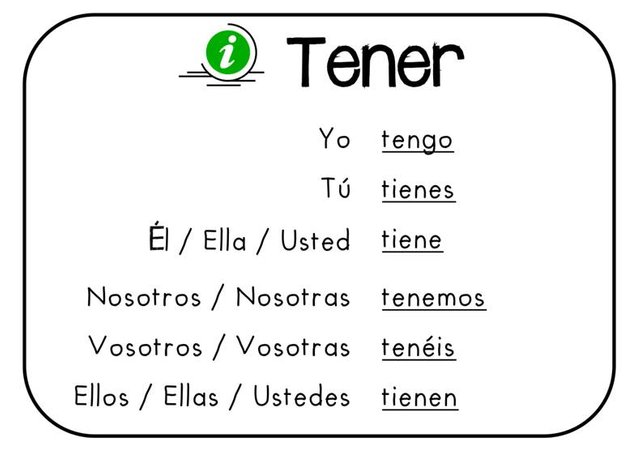Tener is used as "to have" in Spanish. It is an irregular verb and is called a "go" verb because the yo form ending in the present tense is go.
Let's conjugate it in the present tense.
Tener = to have
yo tengo = I have
tú tienes = you have
él/ella/usted tiene = he/she/ you formal has
nosotros(as) tenemos = we have
vosotros(as) tenéis = you all (Spain) have
ustedes/ellos/ellas tienen = you all/they (males, males + females; all females have)
Some examples of sentences using 'tener'
- Yo no tengo mucho dinero. = I don't have a lot of money.
- Tengo tres hermanos = I have three brothers (or siblings).
- Tenemos muchos amigos = We have many friends.
- ¿Vosotros tenéis una cerveza para mí? = Do you guys (Spain) have a beer for me?
- Tú no tienes un carro = You don't have a car.

